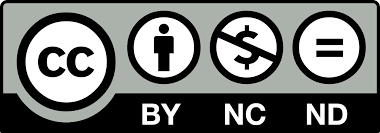Economic Competitiveness and Availability of Road Infrastructure
Paweł Merło
Faculty of Economic Sciences, University of Warmia and Mazury in Olsztynhttps://orcid.org/0000-0002-6881-2852
Jakub Juszkiewicz
Student of the Faculty of Economic Sciences, University of Warmia and Mazury in OlsztynSzymon Łątkowski
Student of the Faculty of Economic Sciences, University of Warmia and Mazury in OlsztynResumen
The level of road infrastructure development brings about several benefits, such as shorter travel times, reduced transport costs, or improved road safety. Undoubtedly, it is also a factor that has had a beneficial impact on the growth of certain regions. This is particularly important for the entire economy (in the macroeconomic context), for regions (on the meso-regional level) and for business enterprises (the macroeconomic aspect). The aim of this study has been to evaluate the effect of the availability of road infrastructure on the economic competitiveness of Polish voivodeships. To this end, the Regional Competitiveness Index (RCI) was compared with the ratio of the density of hard-surface roads per 100 km2. The analysis showed that the highest regional competitiveness and simultaneously the highest road density ratio were in the voivodeships: śląskie, małopolskie and mazowieckie. However, the majority of regions in Poland are composed of voivodeships with both of these indicators scoring below zero. These are regions in the eastern part of Poland; as well as the lubuskie and zachodniopomorskie voivodeships.
Palabras clave:
economic competitiveness, development of the region, road infrastructure, transportCitas
Ambroziak, T., & Pyza, D. (2011). Problematyka wykorzystania różnych form transportu w aspekcie zrównoważonego rozwoju infrastruktury transportu. Logistyka, 4. Google Scholar
Aschauer, D.A. (1989). Is public expenditure productive? Journal of Monetary Economics, 23(2), 177–200.
Crossref
Google Scholar
Burnewicz, J., & Grzywacz, W. (1989). Ekonomika transportu. Warszawa: Wydawnictwo Komunikacji i Łączności. Google Scholar
Calderón, C., & Servén, L. (2004). The Effects of Infrastructure Development on Growth and Income Distribution. Washington DC: The World Bank.
Crossref
Google Scholar
Dijkstra, L., Annoni, P., & Kozovska, K. (2011). A New Regional Competitiveness Index: Theory, Methods and Findings. European Union Regional Policy Working Papers, 02. Google Scholar
Domańska, A. (2006). Wpływ infrastruktury transportu drogowego na rozwój regionalny. Warszawa: Wydawnictwo Naukowe PWN. Google Scholar
Główny Urząd Statystyczny. (2019). Retrieved from https://stat.gov.pl (19.08.2021). Google Scholar
Hawlena, J. (2012). Konkurencja na rynku lotniczych przewozów pasażerskich w warunkach globalizacji. Katowice: Wydawnictwo Uniwersytetu Ekonomicznego w Katowicach. Google Scholar
Kaczyńska, W., & Korycińska, K. (2014). Wpływ infrastruktury transportu drogowego na rozwój regionu. Zeszyty Naukowe Uniwersytetu Przyrodniczo-Humanistycznego w Siedlcach, 30(103), 319-324. Google Scholar
Kamerschen, D.R., McKenzie, R.B., & Nardinelli, C. (1991). Ekonomia. Fundacja Gospodarcza NSZZ “Solidarność”, Gdańsk, p. 47. Google Scholar
Knoke, D., Bohrnstestedt, G., & Potter Mee, A. (2002). Statistic for Social Data Analysis. F.E. Peacock Publisher Inc., Itasca, Illinois. Google Scholar
Koźlak, A. (2007). Poprawa dostępności transportowej regionów peryferyjnych w polityce spójności Unii Europejskiej. In M. Michałowska (Ed.). Procesy integracyjne wybranych systemów transportowych. Katowice: Wydawnictwo Akademii Ekonomicznej w Katowicach, p. 73–86. Google Scholar
Koźlak, A., & Pawłowska, B. (2014). Rola infarstruktury transportowej jako czynnika poprawy konkurencyjności Europy. Zeszyty Naukowe Uniwersytetu Szczecińskiego. Studia i Prace Wydziału Nauk Ekonomicznych i Zarządzania. 37(2). Google Scholar
Nazarczuk, J.M. (2013). Potencjał rozwojowy a aktywność inwestycyjna województw i podregionów Polski. Olsztyn: Wydawnictwo Uniwersytetu Warmińsko-Mazurskiego. Google Scholar
Nurkse, R. (1963). Wpływ obrotów międzynarodowych na rozwój gospodarczy. Warszawa: Państwowe Wydawnictwo Ekonomiczne, p. 84-85. Google Scholar
Pawłowska, B. (2013). Zrównoważony rozwój transportu na tle współczesnych procesów społeczno- Google Scholar
-gospodarczych. Gdańsk: Wydawnictwo Uniwersytetu Gdańskiego, chapter 4. Google Scholar
Pojęcia stosowane w statystyce publicznej. (no data). Główny Urząd Statystyczny. Retrieved from https://stat.gov.pl/metainformacje/slownik-pojec/pojecia-stosowane-w-statystyce-publicznej/3898,pojecie.html (06.08.2021). Google Scholar
Pyza, D. (2010). System transportowy i jego ukształtowanie w Systemie logistycznym Polski. Prace Naukowe Politechniki Warszawskiej, Transport, 76. Google Scholar
Ratajczak, M. (1999). Infrastruktura w gospodarce rynkowej. Poznañ: Wydawnictwo Akademii Ekonomicznej w Poznaniu. Google Scholar
Ratajczak, M. (2000). Infrastruktura a wzrost i rozwój gospodarczy. Ruch Prawniczy, Ekonomiczny i Socjologiczny, 4. Google Scholar
RCI scorecards. (2019). European Regional Competitiveness Index. Retrieved from https://ec.europa.eu/regional_policy/en/information/maps/regional_competitiveness/ (19.08.2021). Google Scholar
Rosenstein-Rodan, P.N. (1959). Uwagi o teorii „wielkiego pchnięcia”. Ekonomista, 2. Google Scholar
Rozwój usług w Polsce. (2021). Zintegrowana Platforma Edukacyjna. Ministerstwo Edukacji i Nauki. Retrieved from https://zpe.gov.pl/a/rozwoj-uslug-w-polsce/DOY6bBRPa (19.08.2021). Google Scholar
Wacek, P. (2013). Modelowanie relacji między infrastrukturą transportu a innowacyjnością w kontekście rozwoju gospodarczego. Zagadnienia Naukoznawstwa, 3(197). Google Scholar
Faculty of Economic Sciences, University of Warmia and Mazury in Olsztyn
https://orcid.org/0000-0002-6881-2852
Student of the Faculty of Economic Sciences, University of Warmia and Mazury in Olsztyn
Student of the Faculty of Economic Sciences, University of Warmia and Mazury in Olsztyn
Licencia

Esta obra está bajo una licencia internacional Creative Commons Atribución-NoComercial-SinDerivadas 4.0.
An Author declares that his paper has not been published before (under the same or another title, or is a part of another publication) and does not infringe copyrights of other persons**. At the same time, the Author transfers to the Publisher the exclusive right to publish and to circulate this work in print in the form of a non-serial journal publication and in a form of an electronic publication.
The journal is available on Creative Common license CC-BY-NC-ND






